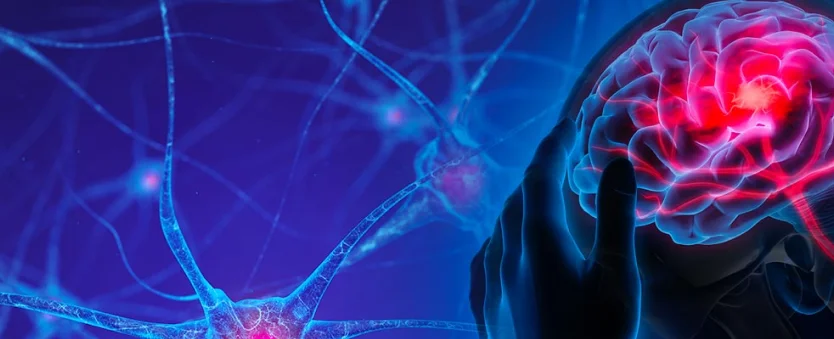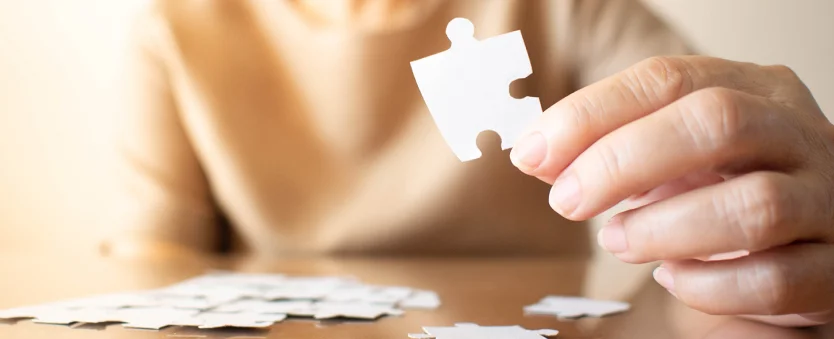Therapeutic Care for People with Concussion

Cognitive Rehabilitation, education regarding symptom management (e.g. headaches, fatigue management), and emotional support on your road to recovery.
Heike @ Mind your Brain has been working with people with brain injury including concussion for more than a decade, helping people gain insight into how these symptoms affect their everyday life, how to manage symptoms, and learn about strategies including their implementation in everyday contexts.
What is a Concussion and how can a person with a concussion be supported?

The word concussion is derived from Latin- to concuss means ‘shaking’. When used in the context of traumatic brain injury, this ‘shaking’ of the brain leads to a neurometabolic cascade (e.g. injury response at the brain cell level). The consequences are expressed in the form of decreased functioning at the physical, cognitive, and emotional level, which lead to symptoms of concussion. These are utilized to diagnose a concussion or traumatic brain injury (TBI). TBI refers to a brain injury caused by a traumatic (i.e., mechanical) event to the head such as the head striking or being struck by an object, falls, or due to the physical forces at work during a motor vehicle accident or similar event. Importantly, not every bump to the head causes a TBI! Rather, a TBI is diagnosed if symptoms ensue.
The severity of a traumatic brain injury is usually diagnosed by three specific injury markers: 1) Loss of consciousness (or altered state of consciousness) which is not caused by other reasons, 2) Glasgow Coma Scale (GCS), and 3) post-traumatic amnesia. To be considered a mild TBI, a person’s injury markers need to remain within the following range: loss of consciousness [LOC] =/< 30 minutes, Glasgow coma scale = 13-15, and post-traumatic amnesia =/< 24 hours. A mild TBI can be diagnosed when a person experiences an altered state of consciousness caused by the injury itself (as opposed to medication or other reasons), meaning that there does not have to be a loss of consciousness for a mild TBI.
Mild TBI is the most common type of traumatic brain injury (TBI), with moderate and severe traumatic brain injuries making up only a small percentage of all traumatic brain injuries. Although concussion is often used interchangeably with mild TBI, it should be noted that a concussion can be more severe, i.e. a concussion can lead to post-traumatic amnesia > 24 hours. Thus, a concussion occurs during any type of TBI (mild, moderate, and severe). In other words, a mild TBI will include a concussion, but a concussion does not necessarily mean “just” mild TBI but rather may overlap with mild, moderate, or severe TBI. According to Giza and colleagues (2016), concussion refers to a clinical syndrome (collection of symptoms) whereas the term traumatic brain injury is a diagnostic entity. Unfortunately, despite recommendations to assess post-traumatic amnesia in patients who present to the emergency department with a potential mild TBI (e.g. GCS of 15), post-traumatic amnesia assessment is not standard practice at present.
Importantly, while not every ‘bump to the head’ will result in a concussion, when a concussion does occur, the result will be an altered state of consciousness (the person appearing dazed, confused, and/ or disoriented or loss of consciousness as described above). In other words, a loss of consciousness is not necessary to have suffered a concussion.
Either way, most concussions will resolve within days to months with no long-term functional consequences. However, many people will require longer recovery times following a concussion depending on several factors.
Main symptoms usually include physical symptoms (e.g., fatigue, headaches, dizziness, visual difficulties), thinking inefficiencies (slowed thinking, attention and memory difficulties), and emotional challenges (e.g., anxiety, depression, irritability, nervousness, feeling tense/ stressed). Since the brain cannot deal with information as efficiently as before the injury, a person might become more easily irritated and frustrated, and will require more rest more often! Anxiety and depression may develop after a brain injury for different reasons.
Part of my practice involves assisting you in figuring out the underlying factors that create the emotional challenges following the brain injury, and guiding you through the maze of recovery and improved well-being (emotional, physical, and cognitive).
TBI, most of which are mild in nature (mild TBI), has been named the “silent epidemic” because issues that result from it (cognitive difficulties, fatigue, resulting emotional difficulties) are not self-evident to the observer. In clear terms, seeing someone with a cast on their arm or wrist means to the observer that the person hurt the wrist/ arm. Thus, the observer won’t request/ require the person to use the injured wrist/ arm while the injured person has concrete evidence explaining the functional consequence of not being able to use the injured wrist/ arm (this obvious explanation leads to an unspoken understanding between observer and injured person that most likely decreases the risk of negative emotional consequences of the injury).
However, when the brain is injured, most of the time we can only know by inference, i.e. the brain is encased in the skull and one can therefore not see whether or not it is injured. Moreover, given the present state of technology (low resolution), oftentimes visual imaging will not reveal any ‘damage’ to the brain despite obvious symptoms (e.g. headaches, fatigue) when they follow a TBI. Injury is thus inferred by behavioural changes, e.g. cognitive assessment.
How can you help: If the person becomes irritable, be patient, and ensure that the person takes a break (rest period) before continuing with the task. In addition, you can assist a person to become aware of these situation, i.e. irritability usually results when the brain receives more stimulation than it can handle for too long, e.g. too much noise or too many people around; or if a given task is too difficult/ complex. By allowing a person to learn these connections between the environmental circumstances and one’s emotional state, the person can gain more control to identify the difficulties and learn to take appropriate action/ strategies.
Examples of such strategies include:
Pacing – taking more breaks more often
Removing oneself from noisy or busy situation to take a brain break when becoming irritable;
Removing auditory or visual distractions from environment by for example closing door, turning off TV or radio, tidying up work area before doing a task, and
Breaking task down into manageable parts
Scheduling a more complex task when one has the most energy in the day.
Summary
- Service Type Concussion Care
- Provider NameMind your Brain,
400-601 West Broadway,BC-V5C 4C2 ,Telephone No.16048027291 - Area British Columbia incl Greater Vancouver, and Yukon
- DescriptionTherapeutic care to support concussion recovery


 Cognitive aging/ cognitive health
Cognitive aging/ cognitive health